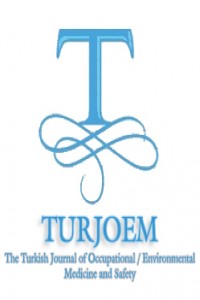Abstract
Most of the known carcinogens are known to be
procarcinogens which are metabolized to ultimate carcinogens in the body and
CYP1 enzymes are major catalysts in this bioactivation reactions. Especially
CYP1B1 is very active in catalyzing the bioactivation of carcinogens like
benzo[a]pyrene, dimethylbenzanthracene and also endogenous estrogens. Therefore
CYP1B1 inhibition seems to be a promising target as a strategy for cancer
prevention and therapy. Since melatonin -a natural indolic hormone which mainly
synthesized in pineal gland- shows chemopreventive activity by inhibiting
procarcinogen bioactivating CYP1 enzymes, we have synthesized series of 5-metoxyindole-3-aldehyde
hydrazone derivatives and investigated their
potential inhibitory effects on
catalytic CYP1B1 activity via EROD assay. The results indicated that newly synthesized compounds strongly inhibited
hepatic microsomal CYP1 activity while mono halogenated compounds have potently
inhibited human recombinant CYP1B1 activity. Position of the halogenation did
not effect the inhibitor activity. Among mono halogenated derivatives, o-chloro substituted one was found to be
more potent (IC50=11nM) than specific CYP1B1 inhibitor, alizarin. In
conclusion, our compounds seems to be promising candidates for preventing CYP1B1 mediated carcinogenesis process.
This work was supported by The Scientific and
Technological Research Council of Turkey (TÜBİTAK) Grant 112S599. Enzyme activity studies are
performed at Ege University Faculty of Pharmacy Pharmaceutical Sciences
Research Center (FABAL).
References
- Department of Pharmaceutical Toxicology, Faculty of Pharmacy, Ege University, 35100, Izmir, Turkey
- Department of Pharmaceutical Chemistry, Faculty of Pharmacy, Ankara University, Tandogan-06100, Ankara, Turkey
- +Erasmus + programme exchange student from Catania University Faculty of Pharmacy
Abstract
References
- Department of Pharmaceutical Toxicology, Faculty of Pharmacy, Ege University, 35100, Izmir, Turkey
- Department of Pharmaceutical Chemistry, Faculty of Pharmacy, Ankara University, Tandogan-06100, Ankara, Turkey
- +Erasmus + programme exchange student from Catania University Faculty of Pharmacy
Details
| Journal Section | Articles |
|---|---|
| Authors | |
| Publication Date | February 16, 2017 |
| Published in Issue | Year 2017 Volume: Volume 2 Issue: İssue 1 (1) - 2.İnternational Congress Of Forensic Toxicology |


